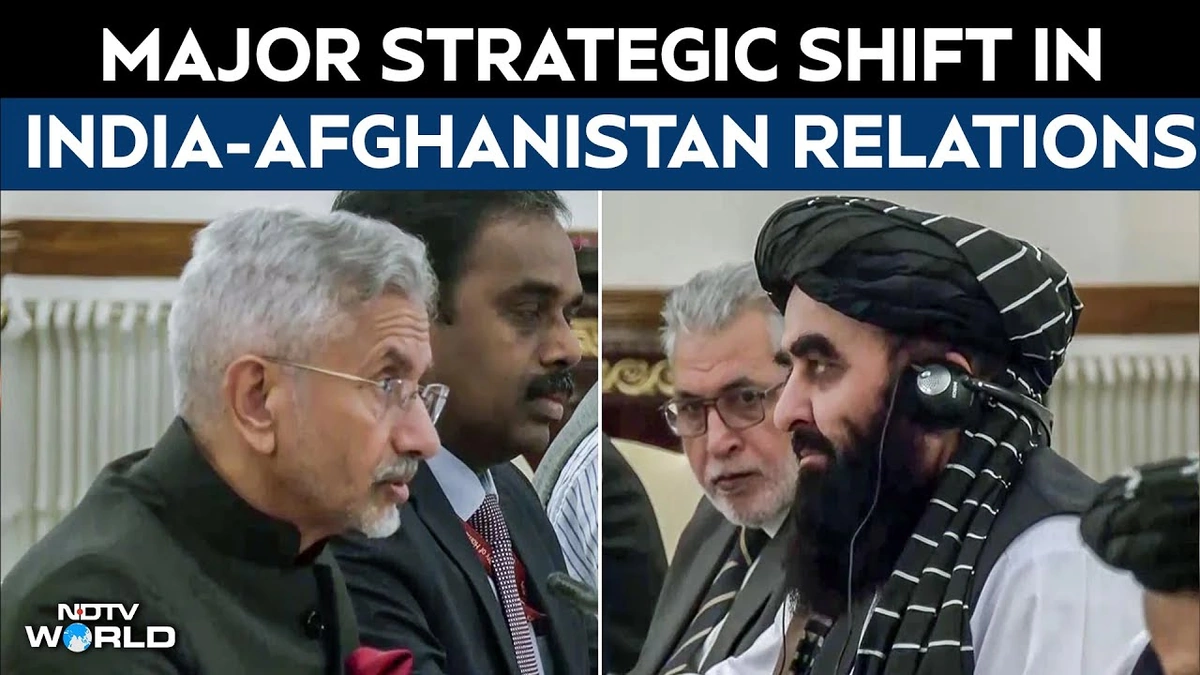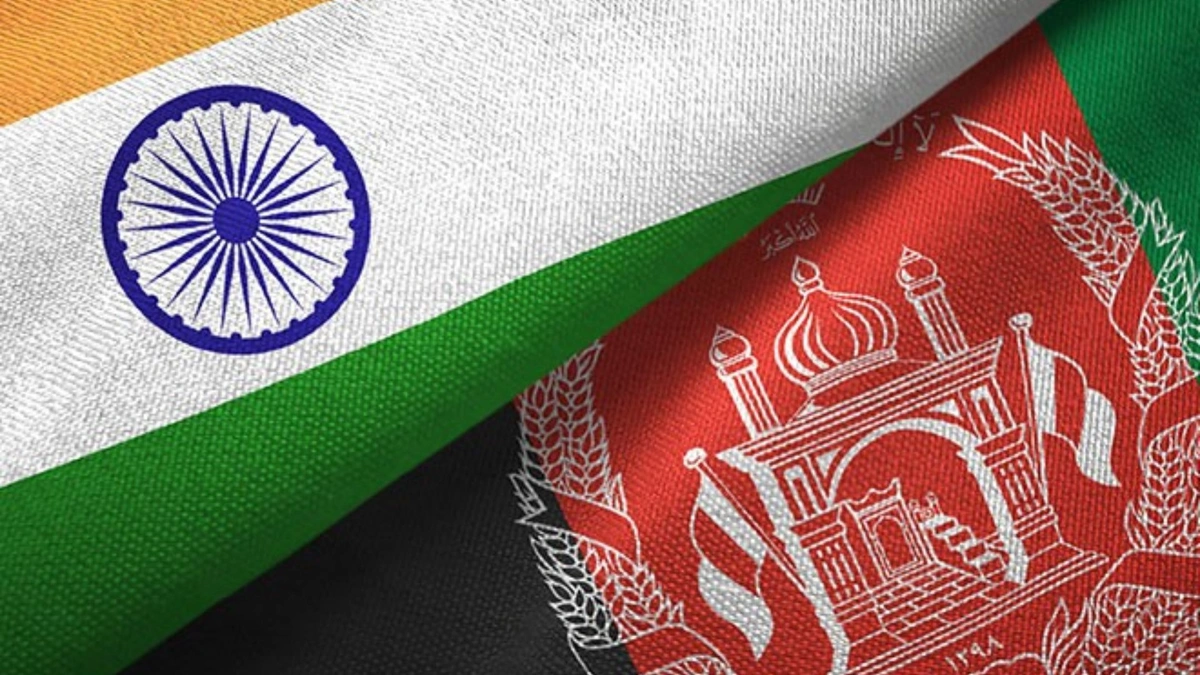India and Afghanistan Pledge Stronger Bilateral Relations
So, India and Afghanistan. It’s a relationship that’s seen its share of ups and downs, right? But here’s the thing: the recent pledges for stronger bilateral relations it’s not just diplomatic niceties. It’s a signal of something much deeper, something tied to regional stability, economic opportunities, and, frankly, India’s own strategic interests. Let’s unpack why this matters, especially for us in India.
The “Why” | India’s Strategic Chessboard in Afghanistan

Let’s be honest, Afghanistan isn’t exactly next door – but it sits at a crucial crossroads. It’s the gateway to Central Asia, a region rich in resources and potential. India has invested heavily in Afghanistan, not just in aid but in infrastructure projects designed to boost regional connectivity. Think of the Chabahar Port, for example, bypassing Pakistan and opening trade routes to Afghanistan and beyond. These investments aren’t just about generosity; they’re about securing India’s long-term economic and strategic goals.
But here’s where it gets complicated. The political landscape in Afghanistan is, well, volatile. Any instability there can easily spill over into the region, impacting India’s own security. That’s why India needs to cultivate strong relationships and influence the trajectory of events. Strong India-Afghanistan relations are essential for regional security.
A Helping Hand | India’s Development Assistance
India’s approach to Afghanistan has always been people-centric. Forget grand, flashy projects; India has focused on building schools, hospitals, and providing humanitarian aid. A common sight I see is local communities benefiting directly from Indian initiatives, which is what creates goodwill and trust. This isn’t just about writing checks; it’s about building lasting relationships.
What fascinates me is the sheer scale of India’s commitment. We are talking about billions of dollars in aid, making India one of the largest donors to Afghanistan. It’s a testament to India’s belief in a stable and prosperous Afghanistan. Of course, there are challenges. Delivering aid effectively and ensuring it reaches the right people requires careful planning and execution, especially given the complex security situation.
Trade Winds | Economic Opportunities for Both Nations
Beyond the geopolitical considerations, there’s a strong economic dimension to the bilateral relations between India and Afghanistan. Afghanistan, despite its challenges, is rich in mineral resources. And India, with its booming economy, is a natural trading partner. The potential for trade and investment is immense, and stronger ties can unlock these opportunities.
But, of course, trade isn’t just about moving goods. It’s about creating jobs, stimulating growth, and improving livelihoods. For Afghanistan, closer economic ties with India can provide a much-needed boost to its economy. And for India, it opens up access to new markets and resources. It’s a win-win, theoretically. The key is to overcome the logistical and security hurdles that currently hinder trade flows. Infrastructure development and improved connectivity are critical.
Navigating the Turbulence | Challenges and the Way Forward
Let’s be honest, the path to stronger relations isn’t going to be smooth sailing. Afghanistan has faced numerous challenges, from internal conflicts to external interference. The one thing you absolutely must understand is that navigating these challenges requires patience, diplomacy, and a long-term perspective.
India’s approach has been to engage with all stakeholders in Afghanistan, promoting dialogue and reconciliation. This is a delicate balancing act, requiring India to maintain its principles while adapting to the evolving situation on the ground. I initially thought this would be straightforward, but then I realized that India’s role is not just about providing aid; it’s about fostering stability and promoting a peaceful resolution to the conflict. The need of the hour is strengthening India-Afghanistan trade relations.
The Road Ahead | A Partnership for Peace and Prosperity
The pledges for stronger India and Afghanistan relations are more than just words. They represent a commitment to a shared future, a future of peace, stability, and prosperity. But it’s a future that requires sustained effort, strategic thinking, and a deep understanding of the complexities of the region.
What fascinates me is that India’s role extends beyond geopolitics and economics; it’s about cultural exchange and people-to-people connections. As per the Ministry of External Affairs, educational programs, scholarships, and cultural initiatives are strengthening the bonds between the two countries, fostering understanding and mutual respect. And that, in the long run, is perhaps the most valuable investment of all. A common mistake I see people make is underestimating the power of cultural ties. And yet, building people to people bridges has a huge impact in times to come. The development assistance to Afghanistan from India has been exemplary.
And that’s the thing: the India-Afghanistan relationship isn’t just about politics or economics. It’s about people, about shared history, and about a shared vision for the future. Building a stronger relationship requires understanding the nuances of the situation.
FAQ Section
Why is Afghanistan important to India?
Afghanistan is strategically important to India as it provides access to Central Asia and can help counter regional threats.
What kind of aid does India provide to Afghanistan?
India provides a range of assistance, including infrastructure development, humanitarian aid, and capacity building programs.
How can stronger relations benefit Afghanistan?
Stronger relations can boost Afghanistan’s economy, create jobs, and improve its overall stability.
What challenges do India-Afghanistan relations face?
The relationship faces challenges due to political instability, security concerns, and logistical hurdles.
What is India’s long-term vision for Afghanistan?
India envisions a peaceful, stable, and prosperous Afghanistan that is connected to the region.
Here’s the final thought: While headlines might focus on pledges and agreements, the true strength of the India-Afghanistan relationship lies in its people – their resilience, their aspirations, and their shared hope for a brighter tomorrow.













